Bronze medal merely a consolation prize for disappointed Boonen
'We took our responsibility and did what we planned' says Belgian
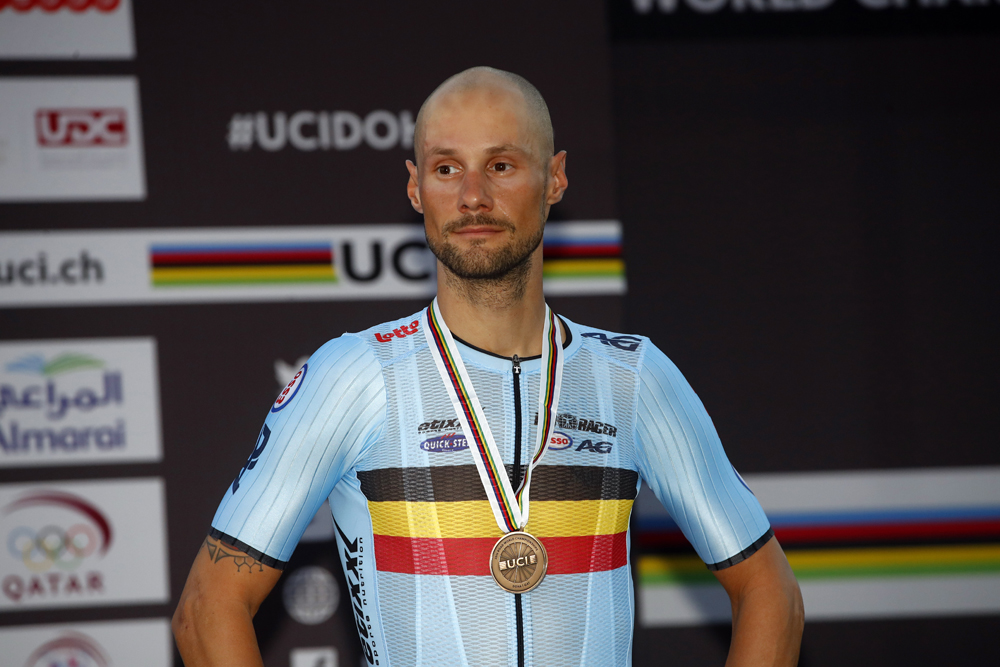
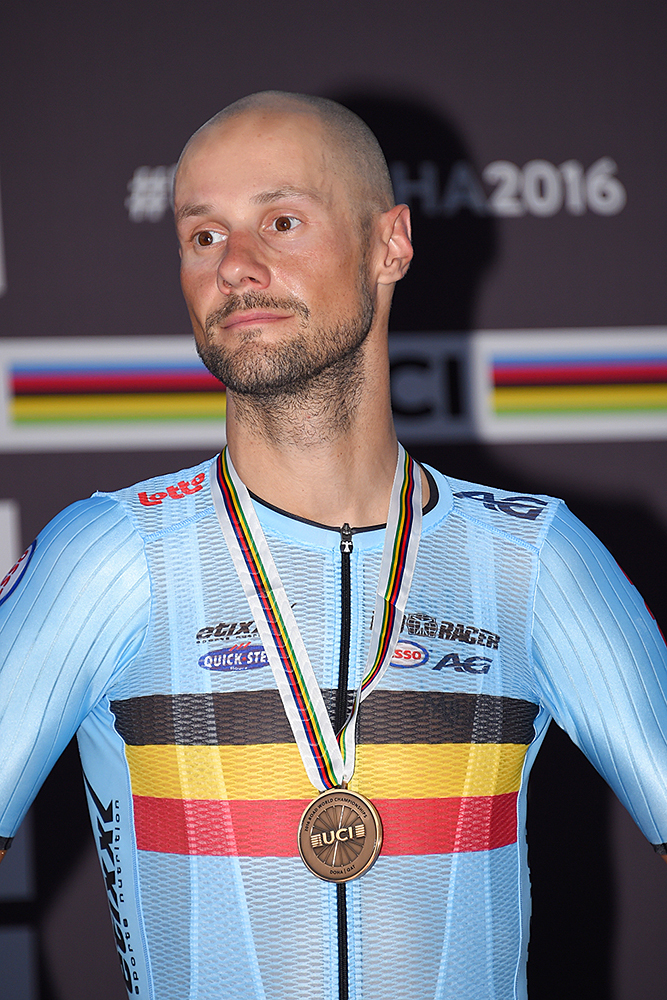
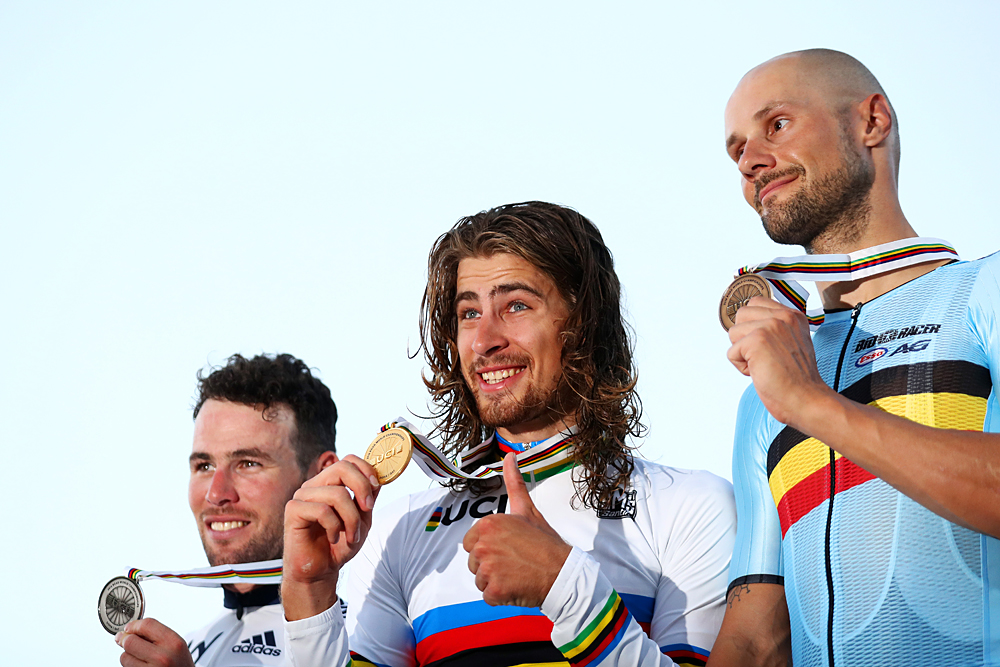
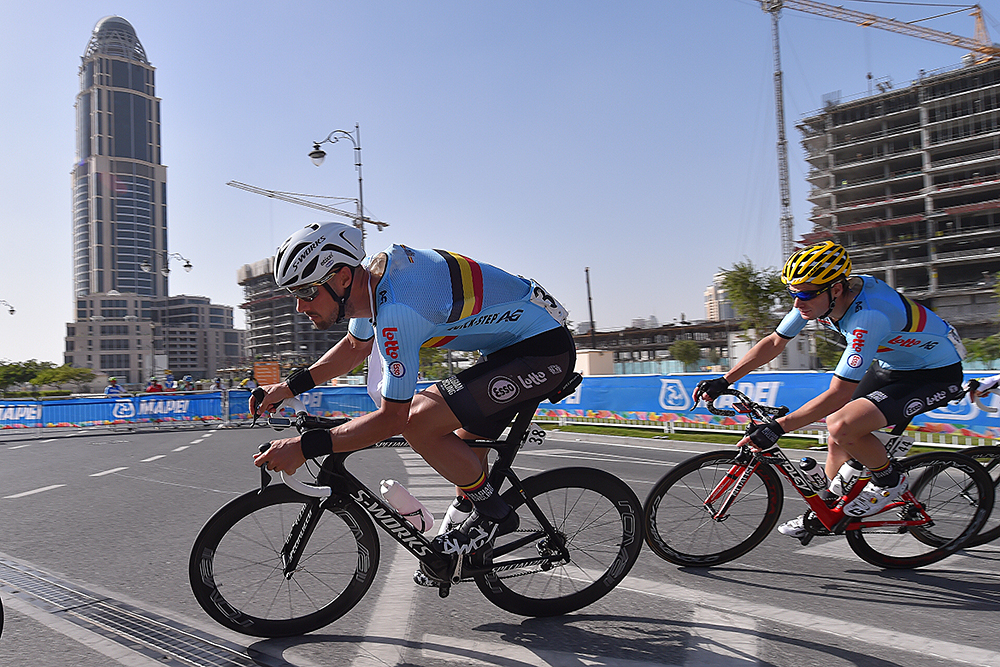
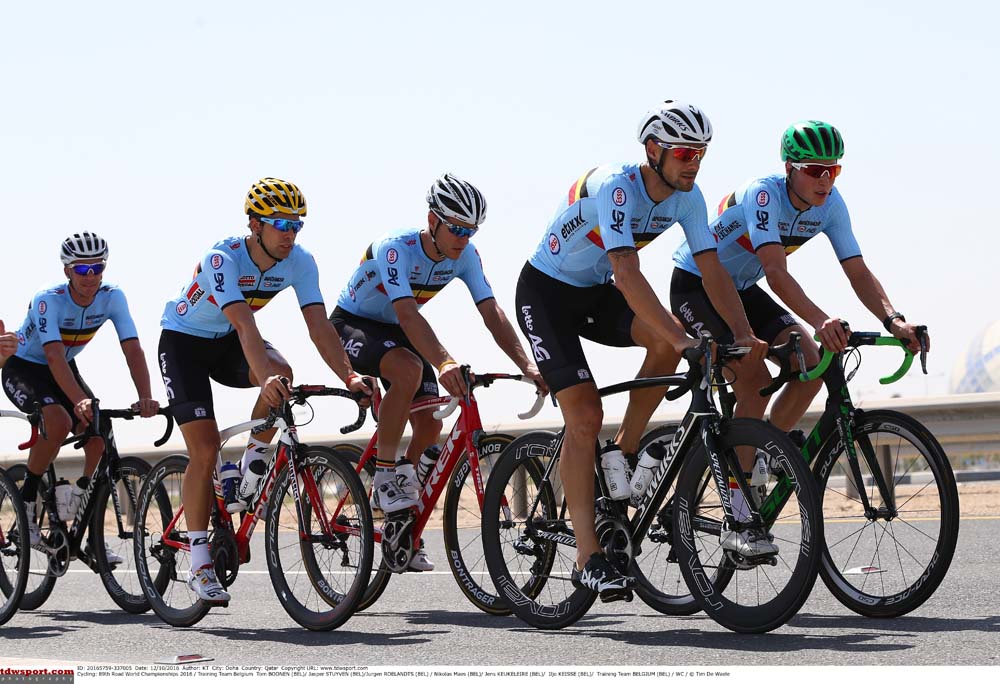
A maddening business, the World Championships. Tom Boonen's Belgium, as anticipated beforehand, made all of the running, and still Peter Sagan (Slovakia) carried off the spoils. Boonen had to settle for third place in the reduced group sprint that decided the title, but it was scant consolation on his final appearance in his national team's famous blue jersey.
"I'm disappointed, but in the end a bronze medal is better than fourth place," Boonen said of placing behind Sagan and Mark Cavendish (Great Britain), though he didn't seem especially convinced of the fact. "In the end, we've brought something away from this Worlds."
Years of racing and winning at the Tour of Qatar had taught Boonen that it doesn't take a lot of wind to make a very big difference in this corner of the Gulf, and so a right-hand turn on a nondescript section of desert road, some 180 kilometres from home, became a sort of preliminary finish line.
Belgium led into the crucial point, and, seemingly on Boonen's command, hell, or a form of it, was unleashed. The peloton was scattered into echelons and when the sifting process was completed, there were some six Belgian riders in the front group of 26, while the threat posed by Germany had been remorselessly excised, with André Greipel, Marcel Kittel and John Degenkolb all missing out.
"We took our responsibility today and we did what we planned. We made the race hard from kilometre 75 to 135," Boonen said of a manoeuvre that some quarters of the Belgian press had labelled as 'Operation Desert Storm' in the build-up to the race.
The mission, of course, was far from accomplished, with sprinters of the calibre of Sagan, Mark Cavendish (Great Britain), Alexander Kristoff (Norway) and Michael Matthews (Australia) all safely aboard this high speed train. Belgium had an ally of circumstance in Italy's quartet in the move, but the uninspiring finishing circuit yielded little chance of whittling down the front group any further.
"The race was actually one hour too long for the spectators, the riders and everyone. It was just stupid it was so long," Boonen said frankly of the 15-kilometre loop around the Pearl, where, in the general absence of spectators, the leaders had only the dipping but still intense afternoon sun for company.
Get The Leadout Newsletter
The latest race content, interviews, features, reviews and expert buying guides, direct to your inbox!
Double Dutch
On the final lap, only the Dutch pair of Niki Terpstra and Tom Leezer caused any frissons. Boonen's teammate Greg Van Avermaet tracked Terpstra's widely-anticipated move, but the unheralded Leezer's solo effort saw him lead the race deep into the final kilometre, and at one point he looked set to follow Oscar Freire or Rudy Dhaenens as a most unlikely world champion. Jürgen Roelandts eventually snuffed out Leezer's attack, but his effort meant that Boonen's planned lead-out had to be redrafted on the hoof.
"We had two tactics. Greg was to cover attacks from guys like Niki and I was to stay with the fast guys. When Niki attacked, he went with him, but I don't know what happened after that, I haven't spoken to him. It's too early to speak about that. Jürgen did a super job, he's super strong guy, but with one more guy it would have been more comfortable," Boonen said, then added sadly: "But it is what it is. You can't change the result anymore so it doesn't matter."
Boonen was a model of magnanimity after his surprising defeat at the hands of Mat Hayman (Orica-BikeExchange) at Paris-Roubaix, but he wore his disappointment more openly at the end of this, his final World Championships appearance before he retires after the Classics next April.
It was Boonen's first medal in the event he claimed his lone world title in Madrid in 2005, but the Doha Worlds has been an objective since it was first confirmed four years ago, and he had designs only on another rainbow jersey.
Up until Leezer's attack, no rider had succeeded in breaking free of the Belgian and Italian stranglehold at the front of the race, but Boonen gave short shrift to the notion that his unexpected ad lib had been a crucial alteration to his team's preordained script for the race.
"Every attack in the race influences the result, eh," Boonen said. "The result of the race is just the sum of every attack and every situation you have during the day. Yes, it influenced the result but it doesn't matter. Tom made a great effort. He was the only guy who was able to do that. He went really fast and nobody really expected it. At least we didn't.
"From 800 metres to go, we had to go full gas, and I think we were one guy short from a perfect lead-out. I had to wait for the other guys to pass and start sprinting again, and that's hard. But in the end, a bronze medal is better than fourth."
Normally as loquacious in defeat as he is in victory, Boonen seemed almost relieved when an anti-doping chaperone suddenly beckoned him to leave his post-race press conference. Before he took his leave, however, Boonen was asked if Sagan, now winner of back to back titles, was unbeatable in this kind of form.
Though on the cusp of retirement and freshly defeated by a rider ten years his junior, Boonen does not view himself as yesterday's man just yet. "He's won a few races but he hasn't won everything," Boonen said after a pause. "Everybody's beatable."
A thought to sustain him ahead of next spring's last crusade.

Barry Ryan was Head of Features at Cyclingnews. He has covered professional cycling since 2010, reporting from the Tour de France, Giro d’Italia and events from Argentina to Japan. His writing has appeared in The Independent, Procycling and Cycling Plus. He is the author of The Ascent: Sean Kelly, Stephen Roche and the Rise of Irish Cycling’s Golden Generation, published by Gill Books.